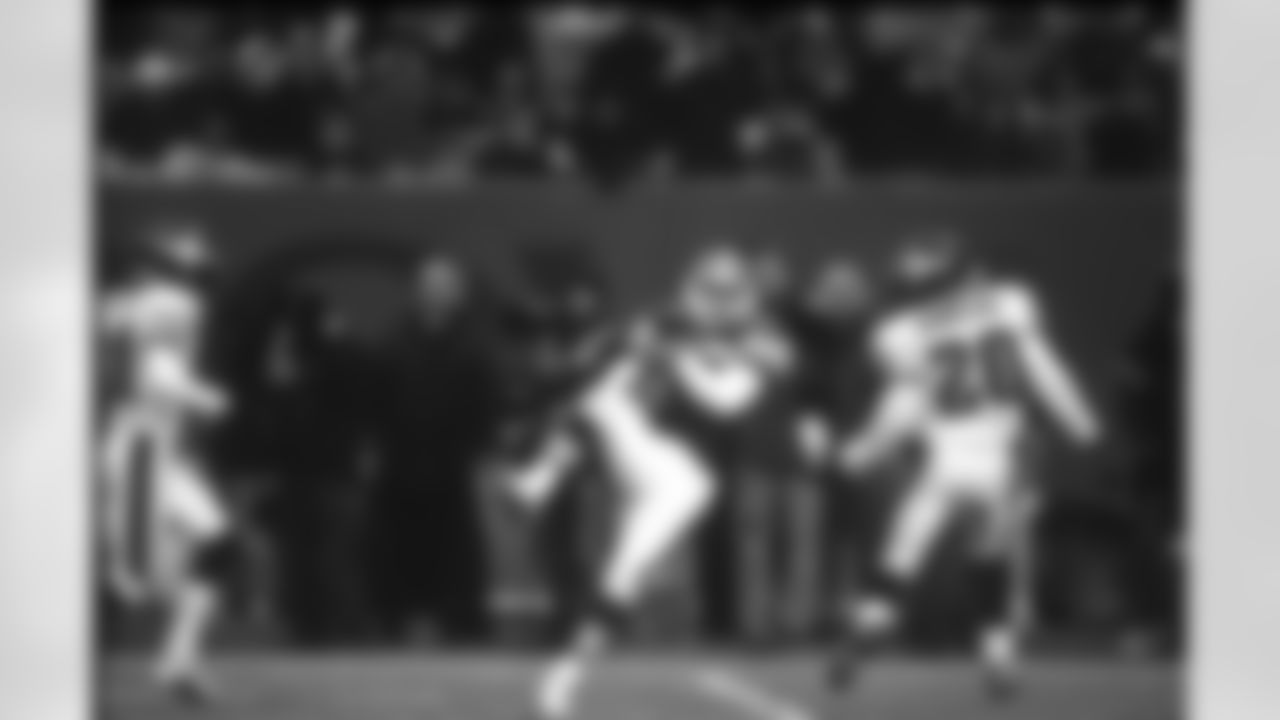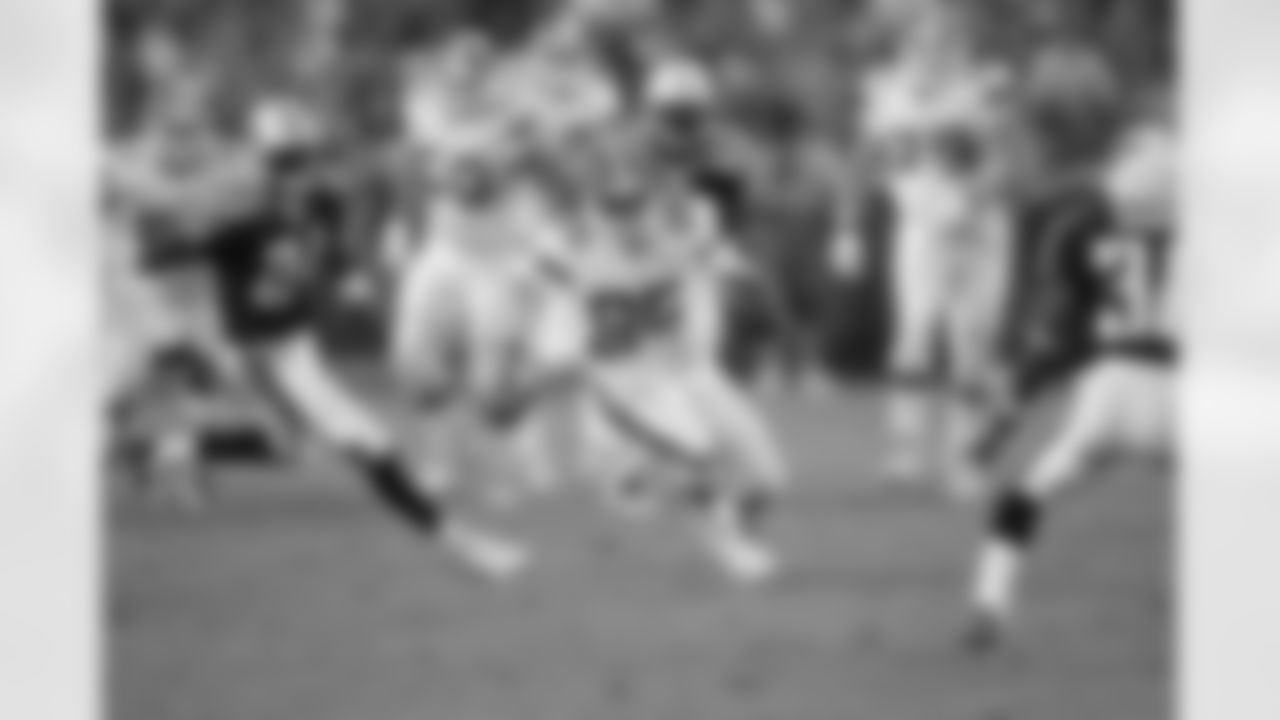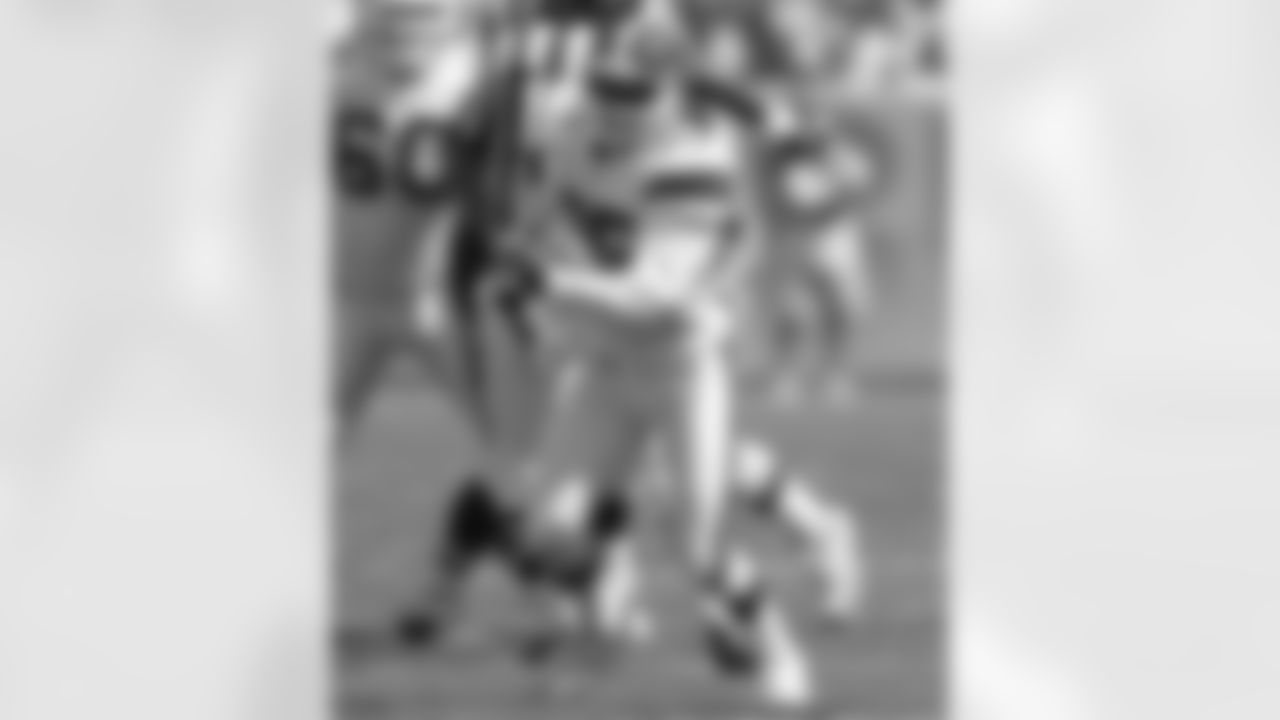Kevin Johnson didn't think the play was going to work.
As he sprinted down the sidelines and to the end zone, Johnson, a rookie wide receiver for the Cleveland Browns, looked at the jumbotron inside the Louisiana Superdome to see when quarterback Tim Couch was going to unleash his deep ball. The Browns, down 16-14 to the Saints in the final seconds, needed a successful Hail Mary play to find their first win of the 1999 season, the first year of Cleveland's expansion era of Browns football.
The Browns hadn't won a game in their previous seven games, and as Johnson and the rest of his receiving teammates ran 56 yards to the end zone, it appeared as though that streak would extend to eight.
"You don't think it's going to work," Johnson said to Jay Crawford in a recent Club 46 interview. "We haven't won a game yet, so this was normal. We're going to get down there, and we're going to lose again. We had no history or no data to say, 'Hey, this is going to work.' There's nothing in our history so far to say we're going to win."
But Johnson wasn't going to give up on the play until Couch's pass, intended for any of the three Browns receivers swarmed by four Saints defenders in the right side of the end zone, hit the turf.
The Cleveland Browns Presents: Club 46 - player stories through generations of football

Kevin Johnson

Kevin Johnson

Kevin Johnson

Kevin Johnson

Kevin Johnson

Kevin Johnson

Kevin Johnson

Kevin Johnson

Kevin Johnson

Kevin Johnson

Kevin Johnson
Three of those New Orleans players reached up and had a shot at the ball. They could've intercepted, deflected it, let it fall — anything. Instead, they decided to all swat at it. The ball popped back into the air.
Johnson, standing near the right pylon, reached in front of the defenders as they fell to the turf. He caught the ball and was knocked out of bounds after making the catch, but as soon as Johnson's feet hit the end zone turf, the game was over.
The Browns' first win back in the NFL was sealed. So was the greatness of Johnson's career, which was hallmarked by the miraculous play and will always stand as one of the most thrilling plays in franchise history.
"When we got that victory, it just was a lot of weight that came off our shoulders," Johnson said. "We never quit and we just kept trying to win a game, and I think it just gave people hope that if we just continue to plug away, we can make some good things happen."
Johnson certainly did all he could to continue bringing good memories to the Browns despite the early struggles of the first few seasons in the new era of Cleveland football. The Browns went 2-14 in 1999 and 3-13 in 2000 as the assemblage of new players attempted to compete among the talented teams in the AFC Central.
But the Browns were set with talent at receiver, and Johnson was one reason why. He recorded 66 receptions for 986 yards and eight touchdowns as a rookie and entrenched himself as a receiver to build around. His game-winning play in New Orleans to seal the first win etched his name in history, but Johnson made many more big plays in the years ahead.
By the end of his Cleveland tenure in 2003, Johnson had accumulated over 315 receptions for 3,836 yards and 23 touchdowns. He played a key role in the success the Browns had in 2002, which ended with a playoff berth after three previous seasons full of painful moments.
Johnson, however, only grew fonder of Cleveland and its passionate Browns fan base during those times.
"Those guys brought it every week and supported the team," Johnson said. "I think they're one of the best fanbases of any sports team. It gives the players a lot of confidence. It makes them feel good to win, lose or draw that you have that type of fan base out there supporting you play after play, week after week."
Johnson, a native of Trenton, New Jersey, had a unique path to Cleveland. When he arrived at Syracuse for his first season of college football, he was a quarterback expected to split opportunities with another true freshman named Donovan McNabb. McNabb received the first three drives in the first game of the season, and after he fired a deep ball touchdown to wide receiver Marvin Harrison on the third drive of the game, Johnson was relegated to clipboard duties from the sideline for the foreseeable future.
Johnson didn't want that. He was willing to do anything to be on the field, even if it meant foregoing his quarterback prospects. When Harrison, who became one of the NFL's best receivers after college, suggested to Johnson he try the receiver position, Johnson didn't hesitate. He worked with Harrison before his junior year to master the position, and Johnson was able to quickly hone his receiving skills and earn a shot to play in his final two seasons.
"I knew what to do because I was a quarterback," he said. "I didn't know how to run routes, but I knew who would get the ball just based on my knowledge of the quarterback position. And quarterbacks are always catching the football because they're always playing catch."
In his final two years at Syracuse, Johnson recorded 92 receptions for 1,506 yards and 12 touchdowns. He was not only one of the best receivers with the Orange — he was a top receiver in the NFL draft.
Johnson's name, though, didn't get called into the second round. But as soon as the call came, he was ready to get to work.
"I flew in that evening and there were fans at the airport," Johnson said. "Phenomenal, phenomenal fan base, and just to see the passion and having the Browns back into Berea was unbelievable. They showed so much support every weekend coming out."
Johnson made sure his name would forever stick with those fans in Week 8. That was when he made the catch that brought the first feelings of winning football back to Cleveland, and even though he created many more moments of greatness across his five-year career with the Browns, that one particular play will always help Johnson be remembered as a legend in Cleveland.
"That was probably one of the most memorable times in my Cleveland Browns history," Johnson said. "That was a big moment."













